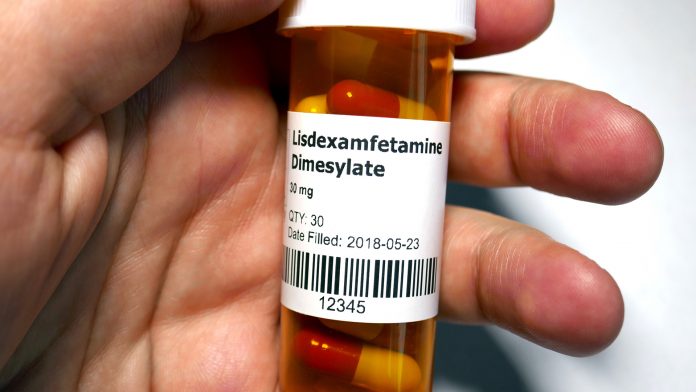
Lisdexamfetamine, a medication for ADHD, has the lowest risk of hospitalisation and death in people with amphetamine addiction, according to research from Karolinska Institutet in Sweden.
The researchers completed the large registry-based study in collaboration with the University of Eastern Finland and Niuvanniemi Hospital. The full findings of the study have been published in JAMA Psychiatry.
“Our results suggest that lisdexamfetamine is associated with the best outcomes, and encourage the conduction of randomised controlled trials to explore this further,” said Jari Tiihonen, professor at the Department of Clinical Neuroscience at Karolinska Institutet, and the study’s last author.
Amphetamine addiction is a growing problem across the world
Amphetamine-related hospitalisations have increased substantially over recent years and amphetamines are the second most illicitly used drug globally.
However, no pharmacological interventions for amphetamine and variant methamphetamine addiction have currently been approved. Some medications have shown promising results, but so far, no studies have been able to provide substantial evidence for their efficacy.
In the current study, the researchers examined the association between generally used medications by people with substance use disorder and the risk of two primary outcomes in people with amphetamine or methamphetamine use disorder. These were hospitalisation due to substance use disorder and hospitalisation due to any cause, or death.
A total of 14,000 participants, all living in Sweden, were included in the study. Each participant was aged 16-64 and had a registered first-time diagnosis for amphetamine or methamphetamine use disorder from July 2006 to December 2018.
Each patient was followed from the point of diagnosis until they either died, moved away from Sweden, was diagnosed with schizophrenia or bipolar or the study ended. The median follow-up time was 3.9 years.
The researchers examined how the risk of hospitalisation or death differed for each participant depending on whether they were taking Lisdexamfetamine.
“Our results show that lisdexamfetamine, a medication approved for treating ADHD and in some countries also for binge eating, was the only specific medication associated with reduced risk of hospitalisation and death,” said the study’s first author Milja Heikkinen, from the University of Eastern Finland.
Lisdexamfetamine is significantly safer than benzodiazepine
The risk of hospitalisation due to substance use disorder was 18% lower and the risk of hospitalisation due to any cause or death was 14% during periods of lisdexamfetamine use, compared to periods without the medication.
Combining two or more different medications for substance use disorder was also associated with a lower risk of hospitalisation or death.
The use of benzodiazepines was associated with poorer outcomes with a 17% higher risk of hospitalisation due to substance use disorder. Benzodiazepines also led to a 20% higher risk of hospitalisation due to any cause or death, during periods of use compared to periods of non-use. Using antidepressants was also associated with poorer outcomes.
The researchers have reiterated that the results may underestimate the putative benefits of the treatments, as pharmacological treatments are often discontinued when the clinical state has improved and started when the clinical state deteriorates. Because of this, the researchers conducted their analysis by omitting the first 30 days of use.








